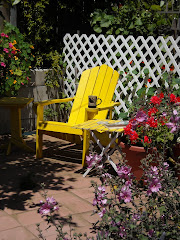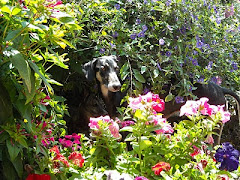This poem by Richard Wilbur, appeared in the March 22 New Yorker. More of his poetry can be found in “New and Collected Poems.”
Ecclesiastes 11:1
We must cast our bread
Upon the waters, as the
Ancient preacher said,
Trusting that it may
Amply be restored to us
After many a day
That old metaphor,
Drawn from rice farming on the
River’s flooded shore
Helps us to believe
That it’s no great sin to give,
Hoping to receive.
Therefore I shall throw
Broken bread, this sullen day,
Out across the snow,
Betting crust and crumb
That birds will gather, and that
One more spring will come.
Sunday, March 21, 2010
Subscribe to:
Post Comments (Atom)












5 comments:
Richard Wilbur is one of my favorite poets. This is a great one I hadn't read. Thanks.
Interesting poem -- especially after reading Leonard Pitt's column in today's Trib!
The Glen Beck crowd probably think giving in this fashion is also a sin -- or maybe they don't "think" that deeply…
Ecclesiastes 11:1 Hebrew Study Bible
Cast thy bread upon the waters: for thou shalt find it after many days.
שַׁלַּח לַחְמְךָ עַל־ פְּנֵי הַמִיִם
כִּֽי־ בְרֹב הַיָּמִים תִּמְצָאֶֽנּוּ׃
Send your bread on the face of the waters because in a multitude of days you will find it (AMP literal)
שלח לחמך על פני המים כי ברב הימים תמצאנו׃
Latin: Biblia Sacra Vulgata-
mitte panem tuum super transeuntes aquas quia post multa tempora invenies illum
שלח לחמך על־פני המים כי־ברב הימים תמצאנו׃
Pronounciation; Shal·lach lach·me·cha al- pe·nei ham·ma·yim; ki- ve·rov hai·ya·mim tim·tza·'en·nu.
See, you too can speak in tongues.
But what does it mean, other than;
ROI Return on investment
What goes around comes around.
It is understood in the Hebraic old testament sense that those who can afford to, shall (not should) take care of the poor, and not with an expectation of return, or an afterlife reward, necessarily, but that in the fulfillment of a contract with the Lord good things could likely happen by human response of goodwill as well as by potential but un-promised divine intervention. It appears from a cursory read that Solomon addresses the rich elsewhere and his intention is to balance out other things.
I am pretty sure that neither corn nor rice were available to biblical times (Solomonic) Egyptians or Hebrews. Rice is a current staple of Middle-Eastern diet. A quick search confirmed also that the method of casting grain is unlikely to be consistent with Egyptian farming practices, at least not in situations where there could be grain loss through water transport. Also the word Grain is not used though Bread could mean that, given an intentional multiple meaning –Hey, it’s Solomon!
I shal now castethe myself upon the rivers of the internet and upon the findings of the words of the Tribulation, and upon their digestion, I shall returneth bearing much kneaded dough.
1 ref. http://study.interlinearbible.org/ecclesiastes/11.htm
Posted By A. Perlman interim Executive Director of the Society to Control and Rein in Unfettered Poetic Licenses Everywhere Seen
Egyptian tomb inscription
May I walk every day unceasingly on the banks of my water, may my soul rest on the branches of the trees which I have planted, may I refresh myself in the shadow of my sycamore.
Ok this is bizzare
first word verification is "pestles"
after a glitch the second comes up "stamons"
The rice reference was a puzzle. Wonder when rice arrived in the middle east? Wouldn't particularly associate rice raising in a desert since it needs lots of water? In Egypt, the metaphor works since the Nile's rise/flood brings/returns the mud that makes the soil rich for the next year's crop, so in a metaphorical way, just as last year's bread is to be found in the future water's mud/flood/rise,so the next flood/mud will in turn bring next year's "bread" crop & etc. So that works since you're betting that the water will, in effect, bring you next year's grain (bread) crop?
And the Egyptian tomb reference, Wow. Shades of The Lords Prayer.
Oops, forgot. Sewertoons. I don't think the Beck crowd thinks too much at all.
Post a Comment